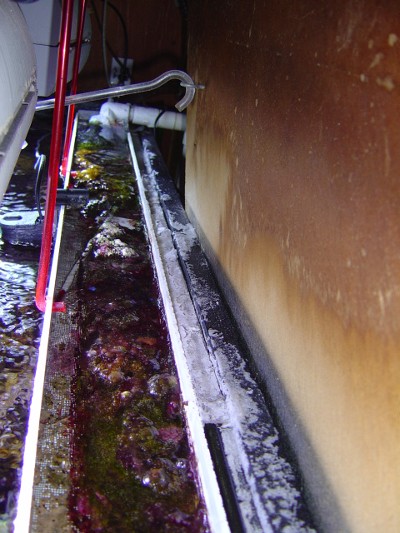OK, I had an orange digi and an orange cap that slowly began to bleach after several months of use. Both came back when I turned off the ozone. So did some annoying funk growth. I now am confident that my failure to change the carbon on a regular basis contributed greatly to this "bleaching" problem. The ozone itself, IMO, did not cause the problem but rather the byproducts of its use that were introduced because they were not removed by the depleted carbon.
Why did I stop? Remember the narrowly-averted fire disaster I almost had a few months ago? Yup. I had to go to a bare bones setup and I have not corrected the electrical problem for various reasons-- partially monitary, partially scientific. Currently I have one MJ1200 circulating water in my 75 gallon Zen Reef. All of the other powerheads (around 8) remain unplugged and my water temp is several degrees lower than it was with all those powerheads plugged in. I was shocked to see how much heat those things put out! The lower water temp allows for higher dissolved gasses in the water and improved the health of my livestock. Simultaneously, the greatly-reduced water flow has slowed the growth of my corals. I wondered if this was due to the water flow, so I stopped dripping kalkwasser and simply replaced evaporation with RO water. The lower calcium and carbonate hardness has had little effect on the growth rates. I am now convinced that the water flow is an undeniable part of the equation.
In short, ozone with an air drier and carbon on the discharge, coupled with lower water temps and proper calcium/hardness levels are key to the whole picture. Nothing new here! Light levels, water movement, Ca/hardness, proper temp, and ozone with air driers and carbon to both prevent and scrub out undesirables respectively is completely in line with what most experts say. It is all part of a delicate balance that, when maximized, produces the best results.
Am I a "new convert" to the "scientific" approach to reefing? No. To the contrary. The water parameters in any given wild reef are different in different locations and certainly differerent in different reefs. The animals that inhabit those reefs vary accordingly. What animals you find there, growth rates of those animals etc. What you end up with is the realization that these animals are remarkably adaptive-- my contention all along. I still maintain that one can keep a successful and vibrant reef without obsessing over all the details. A reefer can achieve great results by simply observing the livestock and "guiding" the reef gently along the way. No test kits, no ORP controllers, no high tech stuff. Just pure Zen Reefing. Are your growth rates going to be as high as someone who stresses over everything? Perhaps not. Is my reef maturing as quickly as some who employ all the gizmos? Certainly not. Look at Lowcell's reef. It was looking quite mature after a year or so. My reef has gone through 10 years of changes and "tweaking"-- gently guiding it along and is now a nice looking mature reef with a ridiculously low-tech setup. It has taken me longer to get there but, when the power went out I lost no corals-- lots of die-back and some fish death but all the corals came through. I attribute that to my reef growing and adapting to perhaps slightly unstable conditions and having to deal with huge changes at times and it has (IMO) made my livestock more resilliant. In the end I end up with a reef that largely takes care of itself.
Of course I have problems but they are fairly infrequent and short-lived. I'm in this for the long-haul and my reef keeping philosophy reflects that (and its kind of "old school"). If you pamper your reef, it becomes incapable of dealing with adversity-- like a child. If you guide it and let it take its lumps, it gets stronger.
Back to ozone-- KISS. Low levels, air drier, frequently changed carbon and keep an eye on it. Maybe you have to turn it on and off a few hours a day-- whatever. But keep in touch with your reef, respond to changes and guide it along the path. 10mg/hr is not going to hurt a 55+ gallon reef...(carbon!)
I may be a loon but there is often a method to the madness.


